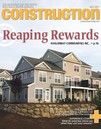Caring For A Disabled Relative
 A trust is beneficial when trying to cover extra expenses not covered by the government benefits program
A trust is beneficial when trying to cover extra expenses not covered by the government benefits program
Caring for a family member with a disability and planning over his or her lifetime is an enormous responsibility. Setting aside the emotional anguish involved in caring for a disabled loved one, the financial burden can be just as distressing.
According to the Ministry of Community and Social Services in Ontario, Canada, approximately 4.4 million people in Canada have disabilities. This represents 14.3 percent of Canada’s population. Projections show that by 2021, seniors with disabilities will outnumber 25-64 year olds with disabilities. In 2026, the majority of people with disabilities will be 65 years of age or older; this represents some 3.05 million people in Canada.
Many Canadian provinces have established governmental programs that provide benefits to disabled persons. In Ontario, for example, a disabled person may receive benefits under the Ontario Disability Support Program (ODSP). To qualify for these programs, a disabled person usually must not have any substantial source of income. However, a family caretaker or guardian may not feel comfortable leaving the financial stability of his or her relative solely to a governmental program. Instead, the caretaker may want to set aside funds to build a nest egg for long-term financial support. The most common form of financial planning is through a trust and utilized in conjunction with a governmental program, Canadians can improve the quality of their loved one’s life.
What is a trust?
A trust is a legal arrangement whereby the settlor (person who creates the trust) sets up an account for the benefit of a beneficiary. The account is in the name of the beneficiary and the trustee (person who manages the trust) uses the money or assets for the benefit of the beneficiary.
A trust can usually provide the same support as parents during the disabled child’s life. Care must be taken to not affect governmental programs providing benefits. A trust is beneficial when trying to cover extra expenses not covered by the government benefits program. It can also act as an emergency fund in case the government benefits are ever cut off for any reason.
Types of trusts in Canada
For a person with a disability, there are two types of trusts: 1) Henson Trusts and 2) Inheritance or Shelter Trusts.
If a settlor has only a modest amount of funds he or she can still create a trust and improve the lifestyle of the beneficiary. Putting the funds in a trust will not disqualify the disabled beneficiary from provincial entitlement for government support.
A settlor might put a larger amount into a Henson Trust and intend that it be used in a short period of time, such as paying for extras and improvement of standard of living of the beneficiary. The money can also be set aside for purposes of a long-term goal of money growth. The idea is to subsidize the growth of the fortune with government support until the government can be relieved of its role.
Care, however, should be taken in setting up trusts since some government programs are only available to individuals on government support. These programs are irreplaceable. Even if a settlor has significant wealth, he or she may not want their disabled beneficiary to lose access to these irreplaceable programs. The emotional strain of caring for a disabled relative is hard enough. Canadians with disabled family members should take advantage of these strategies in congruence with governmental programs to further enhance the quality of their relative’s life as well as lessen financial burdens.
Henson Trusts:
Henson Trusts have been allowed in Ontario since the 1980s. A Henson Trust takes its name from Ontario (Ministry of Community and Social Services) v. Henson, a 1987 Divisional Court case where a settlor created a discretionary trust for his disabled daughter, Audrey, until her death, with the funds then going to a charity. At that time, the Ontario Court of Appeal decided that a person with a disability, receiving benefits from the Ontario Family Benefits Program, should not be cut off from these benefits if the person is receiving money from a trust under which the trustee has complete control or absolute discretion as to when payments can be made. According to the court, since someone else is making decisions as to when and how money is spent from the trust, the assets of the trust cannot be considered the assets of the beneficiary.
Subsequent court cases have found that these same principles apply to a person receiving ODSP. Consequently, only money that is in complete control of the disabled person can be counted as his or her assets for purposes of determining eligibility for government benefit programs.
Inheritance Trust or Shelter Trust:
This trust can be set up when the disabled person is set to receive less than $100,000 or if he or she is named as a beneficiary in a life insurance policy of less than $100,000.
The disabled relative will still qualify for ODSP benefits as long as there is less than $100,000 in the Inheritance or Shelter Trust. If there is more than one Inheritance Trust, then the total value of all combined must not exceed $100,000. Each year, the relative will be paid from the income of the trust.
The money in the trust must be kept separate from accounts controlled by the disabled relative. The trustee, according to the terms of the trust, is directed to pay all of the income from the trust to the beneficiary if the capital of the trust is $100,000.





